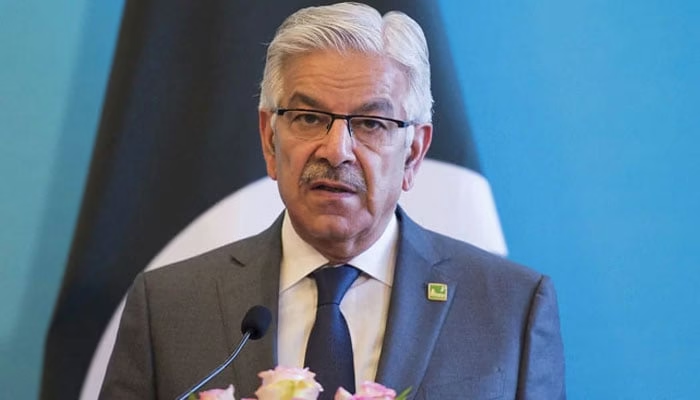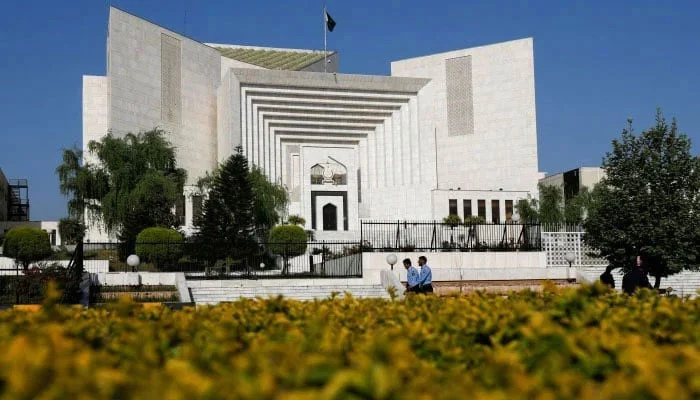Defense Minister Khawaja Asif has hailed the recent luncheon hosted by U.S. President Donald Trump in honor of Pakistan’s Field Marshal Syed Asim Munir as a major breakthrough in bilateral relations. Speaking on Geo News’ flagship program Aaj Shahzeb Khanzada Kay Sath, the minister emphasized that such warmth and diplomatic courtesy had never been extended to a Pakistani military official before by any sitting U.S. president.
Khawaja Asif underscored the symbolic and strategic importance of this meeting, calling it “a significant milestone” for both Pakistan and the broader South Asian region. He added that the schedule for Field Marshal Asim Munir’s visit to the United States was arranged well in advance, but the tone and outcome of the engagements suggest a promising new chapter in regional diplomacy.
Unprecedented Warmth in US-Pakistan Ties
Field Marshal Asim Munir’s visit, especially his direct meeting with President Trump at the White House, has drawn widespread attention in international media. The luncheon was held in the Cabinet Room, away from public view, as journalists were not permitted to attend. However, following the private session, President Trump addressed reporters in the Oval Office and praised the Field Marshal.
It was an honor to meet with Field Marshal Syed Asim Munir today, Trump said, signaling a potential pivot in U.S. foreign policy as it relates to Pakistan. According to sources, a range of topics including regional security, counterterrorism cooperation, and economic investment were discussed during the meeting.
Kashmir Issue Gains International Attention
In the same interview, Khawaja Asif also addressed the long-standing Kashmir conflict. He stated that the matter is no longer just a bilateral issue between India and Pakistan, but one that has gained international prominence—especially after President Trump’s earlier offers to mediate.
The Kashmir issue has received renewed international attention. It is no longer just between New Delhi and Islamabad. President Trump’s willingness to engage is a reflection of that shift,Asif noted.
While India has repeatedly rejected third-party mediation, Pakistan has welcomed global attention to the Kashmir situation, especially in the wake of alleged human rights violations and increasing regional tensions.
On India’s Concerns Over J-35 Jets
Commenting on Indian media reports suggesting that Pakistan has acquired 40 J-35 fighter jets from China, the Defense Minister offered a straightforward response. If India is worried about this news, let it be worried. It is our sovereign right to purchase any weapon system we need for national defense.
He reiterated that Pakistan’s military modernization is driven by its own strategic needs and regional realities, not by the insecurities of its neighbors.
Regional Impact and Strategic Implications
The Defense Minister believes that Field Marshal Asim Munir’s visit and the unprecedented access granted to him in Washington will positively influence regional dynamics. Asif stressed that the visit reflects Pakistan’s increasing relevance in both regional and global affairs, particularly as tensions continue to rise in the Middle East and South Asia.
He also pointed out that the engagement sends a message to adversaries and allies alike that Pakistan is seeking balanced, forward-looking relationships based on mutual respect and shared interests.
U.S. Acknowledges Pakistan’s Strategic Role
President Trump’s hospitality and remarks have been widely interpreted as recognition of Pakistan’s evolving geopolitical importance. While previous U.S. administrations have maintained cautious ties with Pakistan, often clouded by mutual mistrust, this luncheon may represent a genuine effort to rebuild bridges.
Field Marshal Munir, who also addressed a gathering of American-Pakistanis in Washington earlier in the week, spoke about enhancing bilateral cooperation not just in defense, but also in technology, minerals, and economic development.
Khawaja Asif concluded the interview by expressing optimism that the dialogue initiated during this visit will lead to long-term strategic partnerships between the U.S. and Pakistan. He suggested that high-level meetings such as these could pave the way for economic collaborations, including investments in Pakistan’s mineral sector and support for regional peace efforts.
This meeting is not just a photo opportunity—it marks a shift,said Asif. It shows that the world is beginning to acknowledge Pakistan’s importance again, and we must build on this momentum.



